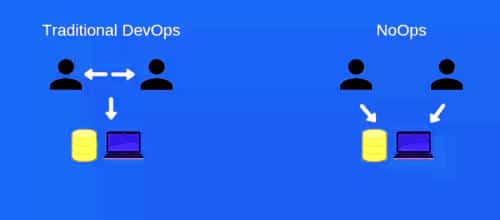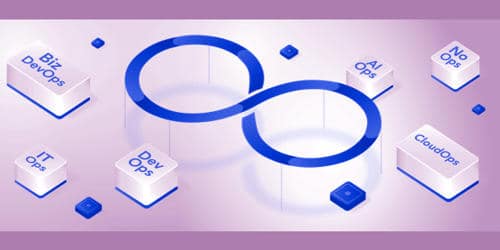NoOps – Future of the IT Industry
Automation has been driving the whole IT industry advance these past couple of years. The current development of the IT industry is based on the principle of automation. NoOps (no operations) is the idea that an IT environment can become so automated and abstracted from the underlying. This isn’t just hype because the wonderful effects of automating various tasks are widely known by now. NoOps will play a significant role in many startups and product-as-a-service (PaaS) companies. It helps them go to market faster, and grasp revenue quicker.
NoOps is the thought that the software environment can be so totally automated that there’s no need for an operations team to supervise it. It is development relies on self-service infrastructure, continuous integration, and deployment solutions but is only possible through the use of a particular software solution. Planning out the budget efficiently and reducing maintenance costs are some of the deemed automation outcomes. To be clear, NoOps is not the same as outsourcing your IT operations. It’s not the same as serverless technology, containers, Kubernetes, or microservices — although these all play roles in moving an IT shop further toward NoOps.
There are two key components that act as the foundation for NoOps: automation and the cloud. When we are talking about automation, we simply cannot overlook the role of software development because it is the software that makes the automation promising. With eliminating a dedicated app management team as the primary goal, NoOps aims to automate all of the maintenance tasks associated with developing and running a solution. Despite the cries of DevOps demise, NoOps is not the end of DevOps. If we look back on the nascent era of software development, we will observe the chronological role of development, testing, and operations for successful software development and functioning. In fact, NoOps is only the beginning of the innovations we can achieve together with DevOps. At the same time, it also aims to elevate apps from the infrastructure that supports them.

NoOps makes sense in the era of cloud computing. This is precisely where NoOps comes into the picture. Amazon’s EKS, for example, can be fully scalable and automated from the very start. The target of NoOps is to minimize or somewhat nullify the efforts of the development team through overall automation.
Common benefits –
- There are many benefits to be gained by adopting a NoOps model. The first of which is that it maximizes development time.
- NoOps allows developers and operations teams to do what they do best: develop and operate.
- With help of NoOps, the process of IT alert management can be sorted. For the example scenario, there is an engineer on average will spends 1-2 minutes to identify the alerts when a problem occur.
An argument – The ideas that power the NoOps movement are sound, but NoOps itself is not without its challenges. Data collection, storage, and analysis are specialties of IT operations, born from a need to measure and improve performance. But data is for the business, not just IT. For starters, NoOps is based on the assumption that automation can handle everything, eliminating the need for human operators completely. As more businesses conduct production and sales digitally, the demand for digital data collection increases. This isn’t always the case. In unique situations, human inputs can be the determining factor for the success and scalability of a deployment. However, it requires the right tools and preferably a full cloud presence and it should not be considered as a silver bullet for DevOps needs.
The world is evolving fast. Especially in the IT industry where technology keeps changing at a lightning speed. Every business wants to grow, move faster, and perform better for its customers. So, for customers who are right now looking for DevOps, DevSecOps, and now its time for you looking into NoOps as well.
















